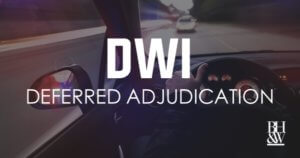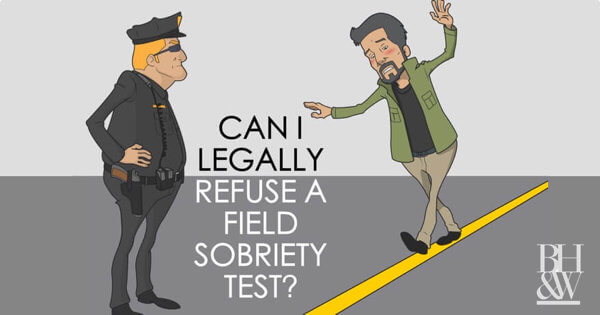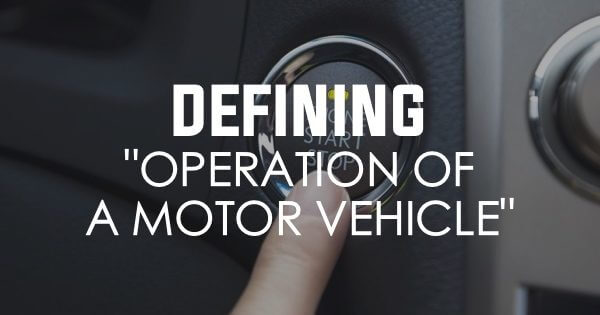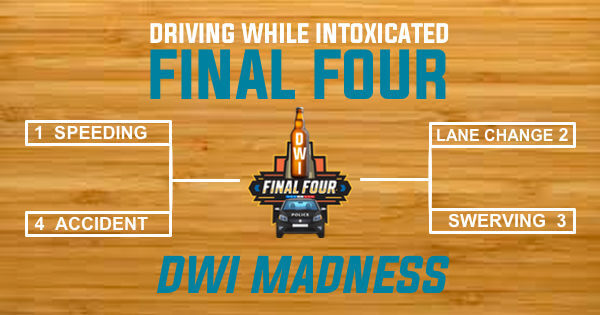Finally, Common Sense Prevails Regarding First-time DWI Offenses
 For years, I’ve had the difficult task of trying to explain to clients facing a first-time DWI charge why their case is treated more harshly under the law than other misdemeanor criminal offenses like assault, prostitution, theft, drug possession, etc. In Texas, you can be charged with one of the latter crimes and have the option of deferred adjudication probation. Deferred adjudication probation has not been an option for DWI offenses in Texas. Until now.
For years, I’ve had the difficult task of trying to explain to clients facing a first-time DWI charge why their case is treated more harshly under the law than other misdemeanor criminal offenses like assault, prostitution, theft, drug possession, etc. In Texas, you can be charged with one of the latter crimes and have the option of deferred adjudication probation. Deferred adjudication probation has not been an option for DWI offenses in Texas. Until now.
Effective September 1st, 2019, a first-time DWI offense may qualify for deferred adjudication probation in Texas. The Texas legislature passed legislation that was signed into law by Governor Abbott that will amend Texas Code of Criminal Procedure Art. 42A.102(b) and make deferred adjudication probation available for some first-time DWI offenses.
What is Deferred Adjudication Probation?
Deferred adjudication probation typically requires the same terms and conditions as regular probation. So, why is it a better option? In Texas, if you receive regular or “straight” probation, the judge is required to enter a finding of guilt in your case which results in a criminal conviction.
Deferred adjudication probation is different because the judge “defers” that finding of guilt and, if you successfully complete the probation, the case results in a dismissal of the charge. Thus, you avoid the penalties and consequences that result from having a criminal conviction on your record.
The New Provisions are Effective September 1st, 2019 and Are Not Retroactive.
Deferred adjudication probation on first-time DWI offenses will apply ONLY to offenses committed on or after September 1st, 2019. That means all offenses committed prior to that date will be governed by previous law that does not allow deferred adjudication probation for DWI offenses.
Are All DWI Offenses Eligible for Deferred Adjudication Under the New Law?
The new law also limits which types of first-time DWI offenses will qualify. Deferred adjudication will NOT be available for first-time DWI offenses if:
- If it is adjudicated that your blood or breath alcohol concentration was .15 or higher at the time the analysis was performed (see Texas Penal Code 49.04(d).)
Or - You held a commercial license or commercial learner’s permit at the time of the DWI arrest
Also, if you are charged with a subsequent DWI after receiving a previous conviction or convictions for DWI, you are disqualified.
The Interlock Trade-Off
For years, defense attorneys and prosecutors (yes – even prosecutors!) have lobbied for making deferred adjudication probation an option for first-time DWI offenders. However, MADD staunchly opposed the idea. So, what’s changed MADD’s position? MADD agreed to the new law because it makes first-time DWI offenders (who previously were NOT required to have an ignition interlock device as a condition of probation) now have it as a requirement. The new law requires the judge to order the ignition interlock device as a condition of probation if you receive deferred adjudication probation for a DWI offense (see the amendment to Texas Code Crim. Procedure Art. 42A.408(e-1).)
There is, however, an exception to this requirement under TCCP Art. 42A.408(e-2) of the new law. If you submit to a substance abuse evaluation and the judge determines (based on that evaluation) that the ignition interlock requirement is “not necessary for the safety of the community,” then the judge may waive the requirement. This is certainly something you would want to discuss with your attorney.
What Will My Record Look Like if I Receive Deferred Adjudication Probation for a DWI Offense?
Although successful completion of deferred adjudication probation results in a dismissal of the underlying criminal charge, there is still a criminal record that must be addressed following the dismissal. The new law limits your remedy options to a nondisclosure (sealing of the record) and even that is not guaranteed.
You will not qualify for a nondisclosure if:
- You have previously been convicted of or placed on deferred adjudication probation for another offense (other than a traffic offense that is punishable by fine only.)
Or - There is sufficient evidence to show that offense resulted in a motor vehicle accident involving another person (including a passenger in the motor vehicle operated by you.)
It’s also worth noting there is a two-year waiting period after discharge from probation to petition the court for a nondisclosure.
Can a Future DWI Arrest Be Enhanced Even if I Wasn’t Convicted on the First One Under the New Law?
If, after your successful completion of deferred adjudication probation and dismissal by the court, you are arrested again for DWI, the new law allows the state to use the prior for enhancement purposes. If your case is dismissed, how can the state use it as a prior conviction? This can make for a candid debate, but, at the end of the day, this was another MADD trade-off conceded by the legislature that you should be aware of when considering long-term consequences of the new law.
DEFERRED SOUNDS GOOD – WHERE DO I SIGN? NOT SO FAST!!!
If, after September 1st, 2019, you or a loved one are faced with a first-time DWI charge and qualify for deferred adjudication probation, it might appear to be an easy option. However, we can’t stress enough how important it is that you retain a qualified DWI attorney who can analyze your case to determine If the state has enough evidence to prove their case or if there are legal or evidentiary issues present that may prove problematic for the state. The experienced DWI Attorneys at Barnett, Howard & Williams, PLLC are here to help determine what your best options truly are. So, please feel free to give us a call.










